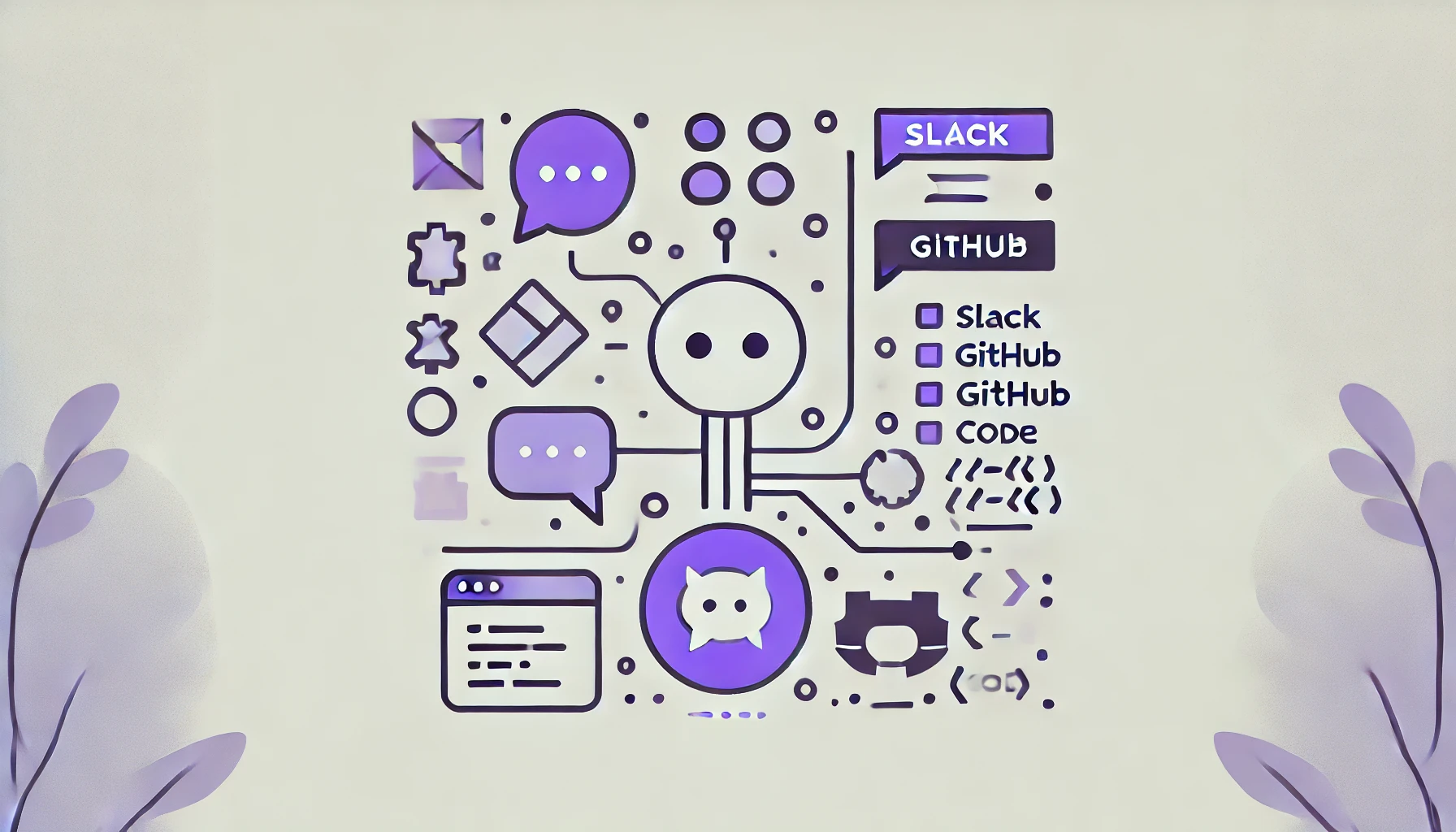· 4 min read
GitHub and Slack Integration: Why It's Crucial for Modern Teams
Discover how integrating GitHub and Slack through Sweady can revolutionize your team's development workflow and boost productivity.
In today’s fast-paced software development landscape, the ability to communicate effectively and maintain a smooth workflow is more crucial than ever. As development teams become increasingly distributed and projects grow in complexity, the need for seamless tool integration has become paramount. This article explores why the integration between GitHub and Slack is essential for modern development teams and how Sweady bridges these platforms to create a more efficient development environment.
1. Current Challenges in Development Teams
Modern development teams face numerous challenges that can significantly impact their productivity and efficiency:
- Information Fragmentation: Developers constantly switch between multiple tools, leading to scattered information and lost context.
- Context Switching Overhead: The need to constantly move between GitHub for code reviews and Slack for communication creates unnecessary cognitive load.
- Review Process Delays: Without proper integration, pull requests can sit unnoticed, creating bottlenecks in the development pipeline.
- Communication Gaps: Important updates and discussions can get lost in general Slack channels or GitHub comments.
These challenges not only slow down development cycles but also affect code quality and team morale.
2. The Power of GitHub-Slack Integration
2.1 Information Centralization
When GitHub and Slack are properly integrated, teams benefit from:
- Unified Information Flow: All repository activities, pull requests, and related discussions are available in one place.
- Reduced Search Time: No more switching between platforms to find specific conversations or code reviews.
- Clear Activity Overview: Team members can easily track project progress and pending actions.
2.2 Workflow Enhancement
Integration brings significant improvements to daily workflows:
- Real-time Updates: Instant notifications about repository activities directly in Slack.
- Quick Access: Direct links to pull requests and relevant GitHub resources from Slack.
- Streamlined Reviews: Faster response times and more efficient code review processes.
2.3 Collaboration Optimization
The integration transforms how teams collaborate:
- Contextual Discussions: All conversations happen in the right context, with direct references to code.
- Enhanced Visibility: Team members stay informed about project updates without extra effort.
- Efficient Communication: Reduced noise and more focused discussions about specific code changes.
3. How Sweady Revolutionizes GitHub-Slack Integration
3.1 Dedicated Ephemeral Channels
Sweady takes integration to the next level by:
- Automatic Channel Creation: Each pull request gets its own Slack channel, automatically including relevant team members.
- Organized Discussions: All PR-related conversations are contained in dedicated spaces.
- Clean Communication: Channels are automatically archived once PRs are merged or closed.
3.2 Smart Notification System
Sweady’s intelligent notification system ensures:
- Personalized Reminders: Team members receive relevant notifications about pending reviews.
- Review Prioritization: Important PRs get the attention they need through smart alerts.
- Reduced Delays: Automatic follow-ups prevent PRs from being forgotten.
3.3 CI/CD Integration
Development visibility is enhanced through:
- Build Status Updates: Immediate notifications about CI/CD pipeline status.
- Deployment Tracking: Real-time updates about deployment progress.
- Quick Issue Resolution: Faster response to build or deployment failures.
4. Tangible Impact on Team Communication
4.1 Metrics and Results
Teams using Sweady typically experience:
- 50% Reduction in PR review time
- 30% Increase in code review participation
- 40% Decrease in time spent switching between tools
4.2 Use Cases and Testimonials
Real teams have reported:
- Improved code quality through more thorough reviews
- Better team engagement in the development process
- Reduced communication overhead
- Enhanced collaboration across time zones
4.3 Return on Investment
Organizations benefit from:
- Time Savings: Developers spend less time managing tools and more time coding
- Quality Improvements: More thorough code reviews lead to better code quality
- Team Satisfaction: Streamlined workflows result in happier, more productive developers
Conclusion
The integration of GitHub and Slack is no longer just a convenience—it’s a necessity for modern development teams. Sweady takes this integration to new heights by providing smart, automated solutions that address real challenges faced by development teams. By centralizing communications, automating routine tasks, and providing intelligent notifications, Sweady helps teams focus on what matters most: writing great code.
As development practices continue to evolve and teams become more distributed, tools that bridge communication gaps and streamline workflows will become increasingly vital. Sweady’s approach to GitHub-Slack integration represents the future of development team collaboration—one where efficiency, clarity, and productivity go hand in hand.
Ready to transform your team’s development workflow? Discover how Sweady can help your team collaborate more effectively and deliver better code faster.
 Sweady
Sweady